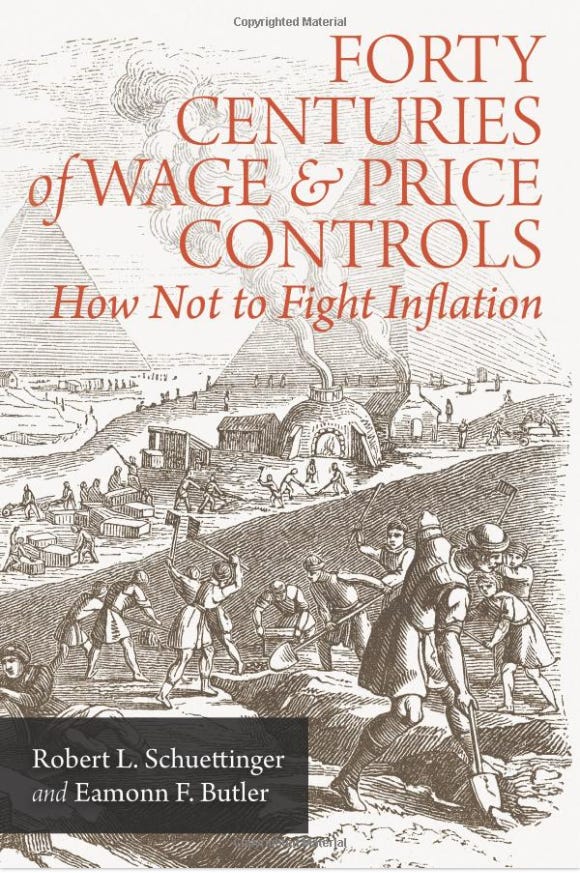
“From today, any price increase is prohibited. Prohibited!
It starts today - not from tomorrow, but from today, so that prices cannot be inflated during the course of today.”
Those are the words of Belarus President, Alexander Lukashenko. He made this declaration in a meeting among Belarus government ministers late last week.1
The Belarusian people are currently suffering an annual price inflation on the order of ~19% according to government numbers.2 But the Belarusian people are not new to this phenomenon of devalued currency and high prices.
This is a classic case of the government “coming to the rescue” for a cause brought on by the government itself. The Belarusian government has been trashing its own currency since Lukashenko became President back in 1994, funding its public expenditures through easy monetary policy.3 This is akin to a robber stealing your valuables and then insisting that you need them to become your security guard!
Since the inception of the currency in 1992, the Belarusian ruble is on its third formation, having been redenominated twice: once in 2000 and again in 2016.4 Apparently, the third time is not the charm. In both instances of redenomination, the government and its central bank thought that simply chopping zeros off of the end of the currency’s nominal value would solve the price inflation problems. Of course, these redenomination tricks appear to magically work on paper. But in reality, the standard of living is devalued in tandem with the currency. And the price inflation inevitably comes back because the underlying cause of monetary expansion is not addressed.
History and Economics Mean Nothing?

Robert Schuettinger and Eamonn Butler have put together a great history of price controls and their ill effects in their book, Forty Centuries of Wage and Price Controls.5 4,000 years of price controls and the inevitable failures at each moment in history mean nothing in the mind of a modern bureaucrat (or a de facto dictator in the case of Belarus). Since the times of the Babylonian Empire, there have been kings, queens, pharaohs, ministers, dictators, senators, presidents, and other baby-kissing plastic men who have turned to the magical dictate of price controls. But, never in all of recorded history has such a policy of price controls resulted in nothing other than dire straits.
Instead of stopping price inflation, price controls only screw up the economy further by spurring black markets and causing shortages. “Trust the science” is the phrase all the trendy kids say these days. But it’s not the science of economics that they are alluding to, unfortunately. Economics shows us that prices mean things. Prices are critical for signaling to producers and consumers on how to act in the market.
High prices signal to consumers that a good or service is scarce, encouraging less consumption. High prices also signal to producers that there is an opportunity to make money, encouraging more production.
Arbitrarily set “low” prices stimulate consumer demand but do the opposite to producers in term of stimulating production. Hence, price controls widen the gap between supply and demand, and shortages always result.
We’ve all heard Albert Einstein’s famous line (perhaps misattributed): “Insanity is doing the same thing over and over again and expecting different results.”
The coming ill effects of Belarus’ “newfound” policy are as predictable as ever. The question is, why governments continue to enact such policies and expect different results. Are they insane?
In the words of Mark Twain6,
“Why, no one is sane, straight along, year in and year out, and we all know it. Our insanities are of varying sorts, and express themselves in varying forms—fortunately harmless forms as a rule—but in whatever form they occur an immense upheaval of feeling can at any time topple us distinctly over the sanity-line for a little while; and then if our form happens to be of the murderous kind we must look out—and so must the spectator.”
- Letter to Joseph Twichell, 10 September 1901
The context of the above quote was Twain writing to his friend J. H. Twichell about the insanity of the man who had just shot President McKinley 4 days prior. Twain was expressing how we all possess the potential for crossing the “sanity-line.” Twain, himself, admitted in the same letter how he once bought a gun and travelled 1200 miles to kill a man. Fortunately, when Twain arrived, the man was not home, and Twain had time to stop and think.
“Within an hour—within half of it—I was ashamed of myself—and felt unspeakably ridiculous. I do not know what to call it if I was not insane.”
Perhaps the President of Belarus just needs a moment to relax and reflect.





Great article!